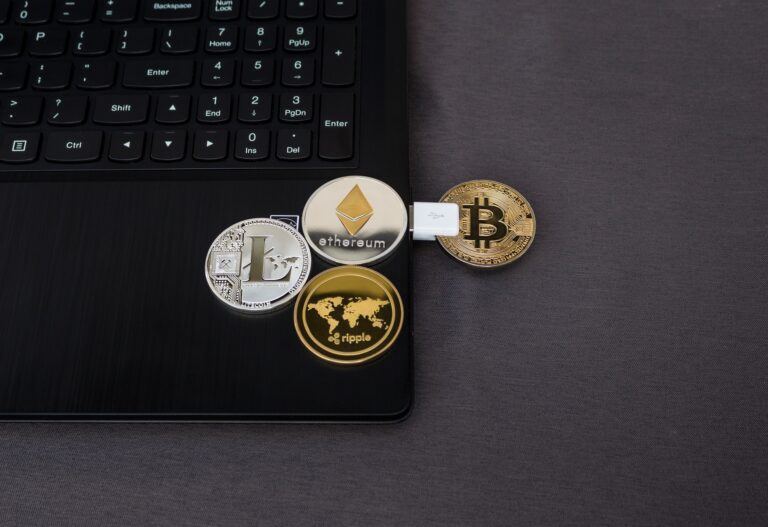Bill Barhydt, CEO and founder of crypto wallet and exchange service Abra, was recently asked during a CNBC interview if his company was acting “responsibly” by making it easier for people to purchase cryptocurrencies. Notably, Abra’s app can now be used to accept fiat deposits from European bank accounts, which are then automatically converted by the app to bitcoin (BTC).
In response, Barhydt said everyone should do more research on the history (and evolution) of traditional money as a medium of exchange and store of value. The Abra CEO recommended that “people should read, learn, [and] understand what governments have been doing to money for hundreds of years.”
Barhydt continued by noting that:
Every currency in history has failed, except gold which is really a metal and a commodity.” Going on to address the question of whether people should be investing in cryptocurrencies, the former Goldman Sachs research analyst clarified that his firm was not advising people to put their life savings into them.
Invest “Only Small Amounts” Into Cryptos
Barhydt then emphasized that people should focus on learning about cryptos while noting that Abra spends a lot of time creating educational blogs and videos about digital currencies. He added that Abra’s crypto services are aimed at “giving people [easy-to-use] tools to put small amounts of money [into cryptocurrencies], get started, learn some more, potentially invest some more, go on forums…start getting into it.”
The tech entrepreneur pointed out that there are “tens of millions” of cryptocurrency wallets now. He also commented that “the average consumer is not putting their life savings into [digital currencies]. They’re putting in small amounts of money.”
Barhydt did, however, acknowledge that there have been “horror stories” where people had lost their entire life savings by making very risky investments in cryptos. But these cases are rare compared to the vast majority of investors who’ve acted responsibly, according to the Abra CEO.
Abra’s Business “Up By 5X Times”
When questioned about how consumers may be approaching cryptocurrencies differently now, after their prices have dropped sharply from last year’s all-time highs, Barhydt revealed that Abra’s business is still growing steadily as “[its] up by 5x since January, but [it’s] also a new company.”
Putting things “into context”, the startup investor said:
there was extreme euphoria in November and December [of 2017 due to surging cryptocurrency prices] and we got way ahead of ourselves. What I think is happening now is that all this infrastructure is being built for institutional investors to come into cryptocurrencies. All these lingering issues as to how [to] manage custody, how to deal with certain [Securities and Exchange Commission] SEC regulatory issues, and other investment right issues in the US.
Barhydt explained that these issues are currently being addressed and that when “institutional money makes its way into the crypto space…watch out. It’s not going to take a lot [of investments] because [cryptos] are still a relatively new asset class.”
Abra Is A Crypto Investment App
The Abra founder then asked, “when was the last time planet Earth had a new asset class?” Despite their potential, many market watchers have said that the mainstream adoption of cryptocurrencies may be inhibited by their highly technical nature.
Barhydt acknowledged that many of the concepts related to digital currencies, such as mining and the complex nature of trading them, can be confusing to the average consumer. However, he also mentioned that, “Abra is not a trading app. It is an investing app [that is similar to how] Fidelity is an investing app for [traditional] stocks. The average stock investor who does their homework long-term in deciding which stocks to buy is not intimately familiar with the operational details of every company they invest in, but they invest [for] long-term [purposes].”
He then noted that the “average Abra investor” was basically doing the same thing as “they’re not using Abra as a trading site to do arbitrage trading multiple times a day. They’re making long-term bets on the fact that cryptocurrencies are here to stay.”
Crypto ETFs Will Happen, “I’ll Bet On It”
Responding to the expectation that this year was supposed to be when institutional investors entered the digital currency market, Barhydt explained that regulators such as the SEC were still trying to understand the rapidly evolving crypto-related technologies.
He also said that he thinks“the issue with the SEC … is that the people who are doing the applications don’t fit the mold of who the [regulator] is used to approving…I think what’s going to happen is that somebody who looks, feels, and smells like the way they want them to…will probably get approved within the next year. [This could] hopefully open the floodgates for entrepreneurs who are also [currently] operating safely and soundly, but don’t necessarily fit the mold [or profile] of what the SEC wants to see.”
Barhydt then confidently concluded:
it’s going to happen in the next year…I would actually make a bet on it…[as] there’s just too much demand for it









